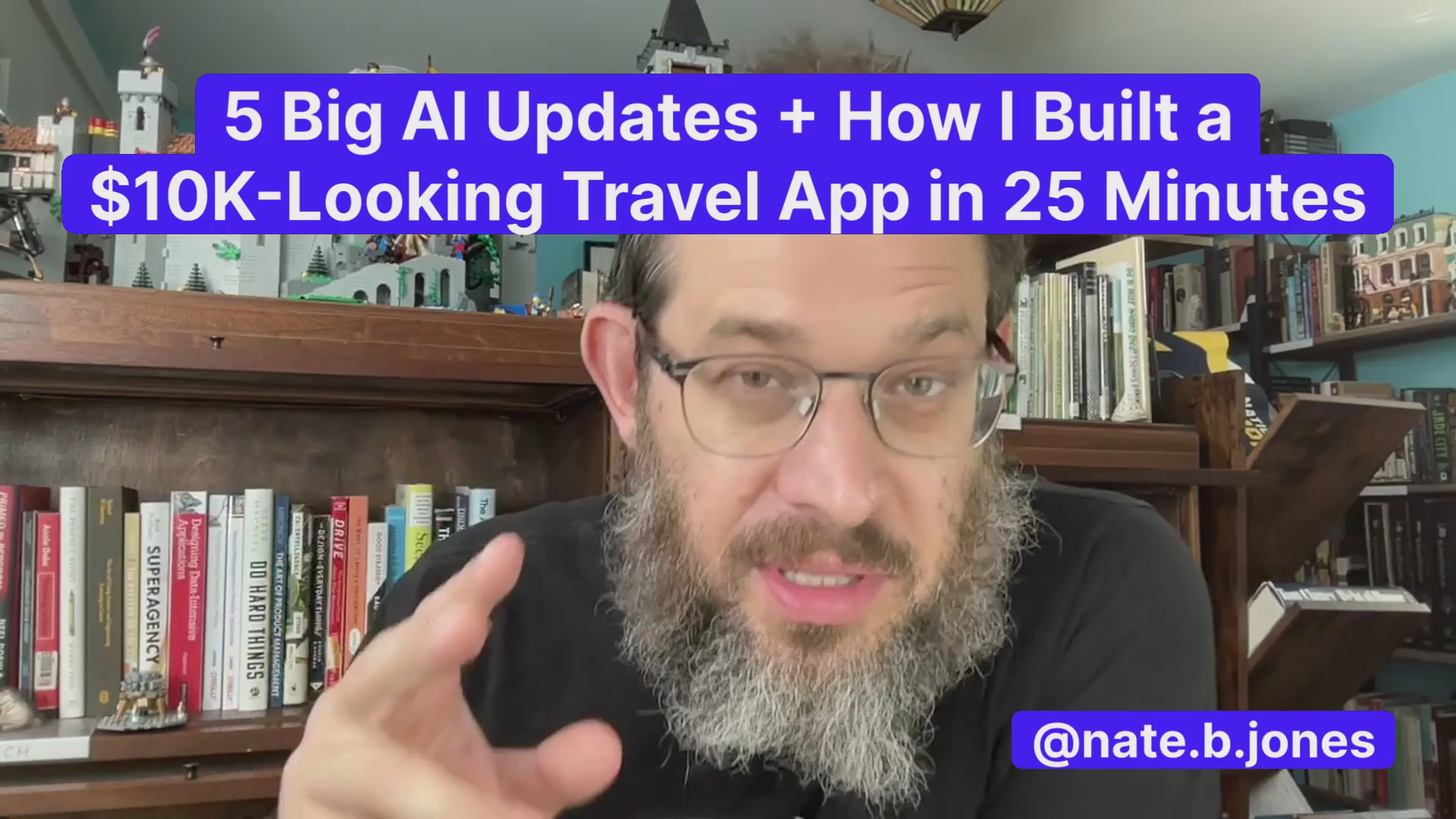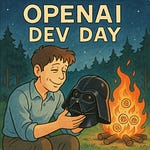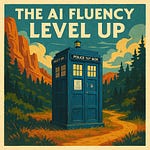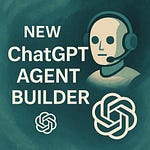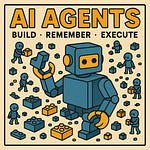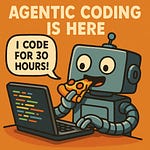ChatGPT-5 launched to a collective uproar. I tracked a bunch of it here.
There were complaints about the loss of old models. Complaints about the new model being dumb. Complaints about charts that were—well, terrible. Anytime you’re launching to several hundred million people there will be some bumps, but this one was especially rocky.
And to be honest: a lot of the complaints were fair! People were (and are) right to ask for agency with their models, they were (and are) right to ask for dependability in the new release. They were (and are) right to expect basic chart fluency. They were (and are) right to expect transparency.
You get the idea.
But I think the world has rubbernecked a bit too much here. We’ve gotten so collectively caught up in the story of ChatGPT-5’s launch (as opposed to the story of the model) that we’ve forgotten two simple truths:
1) this is a good model that does important new things
2) AI hasn’t stopped accelerating even in the few days since.
That’s what this post is about. If you read this blog regularly, you know I tend to bias to the practical. I decided to stay that way while everyone argued about ChatGPT-5. So I built two separate fully functional versions of a travel app plus shareable prompts in 25 minutes without writing a single line of code. Or (to be honest) without even a particularly great initial prompt. My one-year-old's nap schedule is now a first-class feature in (family scale) production software. My wife is adding restaurants. We're using it to plan our actual trip.
Meanwhile I watched the news and saw milestone after milestone pile up that weren’t about ChatGPT-5. AI was progressing and shipping despite all the uproar.
This disconnect—between the disappointment the world felt and the reality of AI progress—that is why I'm writing this piece.
I honestly think we’ve become so accustomed to miracle that we've lost the ability to see it. Three years ago, if I told you someone could build two versions of an entirely custom app with drag-and-drop, local storage, and intelligent routing in under half an hour without touching code, you'd have laughed. And so would I!
That’s how fast it moves.
And that’s how fast it’s still moving. Because here's what's actually happening while everyone's writing their hot takes: Claude just hit a million-token context. Meta's predicting neural responses to videos with 50% accuracy. Sam Altman's building brain interfaces. Google's AI is having literal breakdowns at scale. Every single day, the landscape shifts in ways that would have been science fiction last year.
So to remind you to see the miracles (some of them, granted, pretty weird—looking at you Meta) I need to show you two things, and I need to show them in detail.
First, the app. Not because it's technically impressive—any developer would cringe at the code. But because of how I built it. Pure conversation. Clear intent. Zero syntax. The messy reality of those 25 minutes—the bugs, the frustration, the swearing, the breakthrough—matters more than any polished demo.
It proves that building software is no longer about knowing React or TypeScript. It's about knowing what you want and explaining it clearly. I got LOTS of asks to show this, so here it is! Don’t take this as my prompting class for building production apps with ChatGPT-5—that may come later—this is the quick prototyping class. This is a prompting class for a new category of software—I call it the kitchen table app.
Second, the news. Because while I was arguing with ChatGPT the whole AI ecosystem kept right on shipping. These aren't random developments. They're coordinates on a map showing where we're headed. Brain interfaces aren't sci-fi anymore; they're Series A. Models aren't just getting bigger; they're developing personalities, pathologies, and patterns we never programmed. The future isn't coming—it's compounding.
Why does this matter? Because we're living through a transition we don't have words for yet. The skill that matters most I think is clarity of intention coupled with a real flexibile willingness to roll with the punches and see things for what they are. Is ChatGPT-5 better at everything? Nope, I don’t think so. But I think it’s amazing at some specific things other models haven’t been able to do yet, and that are highly relevant for work.
That’s the kind of flexibility we need.
Can you specify what you want? Can you recognize when it's wrong? Can you iterate until it's right? That's not programming. It's product management. It's design thinking. It's clear communication.
As requested by so many of you, I'm showing you everything—every error, every frustration, every small victory—because the revolution isn't in the perfect. It's in the possible. It's not that AI writes flawless code. It's that clear thinkers can now build useful things immediately, specifically, personally.
The gap between "I need this" and "I have this" has shrunk to 25 minutes of clear communication.
If it’s that close, you can build too!
Listen to this episode with a 7-day free trial
Subscribe to Nate’s Substack to listen to this post and get 7 days of free access to the full post archives.


